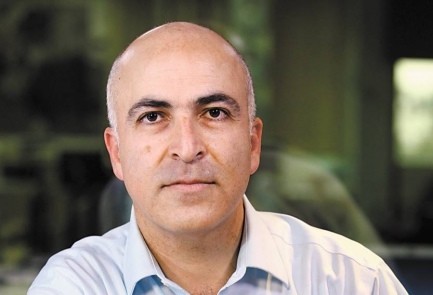A war without a winner
It is nice to see German Chancellor Angela Merkel and French President Emmanuel Macron hugging one another 100 years after the Great War. But we must not forget that between the end of that war and today, another, far more terrible world war raged.
As iconic British Prime Minister Winston Churchill saw it, World War I and World War II were both part of one great war that lasted from 1914 to 1945; the calm that pervaded from 1918 to 1939 was nothing more than a temporary ceasefire. In his mind, this great war was a newer version of the Thirty Years’ War that tore Europe apart and established a new world order.
No true victor emerged from this war, which left both sides left bloodied and defeated. Then came the “crazy years” of 1920s’ France, which pushed the impending danger back across the border. While France appeared to dictate the humiliating conditions of the Versailles Treaty, the country itself was already tired and defeated. And when it came time for Round 2, otherwise known as World War II, the country collapsed and continues to collapse to this day.
In retrospect, the peace conference held in Paris in January 1919 and the treaties signed there seem ridiculous. There is a lesson to be learned from the end of World War II—one that can be found in the blood spilled by tens of millions of soldiers and civilians across the world along with another 6 million of our people in World War II.
A peace agreement or diplomatic treaty is not the end of the story. Italian philosopher Niccolò Machiavelli saw war as the “natural state” of nations, within which each nation tries to swallow the other alive. Limited resources combined with the insatiable desire to obtain them births permanent societal and political tension that manifests in war.
You don’t need to accept Machiavelli’s opinion, but you do need to take it into account. Those who dismiss it will, in the second chapter, encounter a more determined enemy army that knows its weaknesses and will they will necessarily endure further periods of conflict.
Another lesson that is much more self-evident in our region than in Europe: Bloody conflicts cannot be resolved merely by entering negotiations and signing a piece of paper that is destined to lay abandoned in an archive; a silent witness to the folly of our leaders.
One must relate to the cultural framework, the religious differences, beliefs, myths and founding stories of the nations that seek to resolve the conflict. One must examine the extent of the hatred and incitement, the strength of the claims being made in the various cultural spaces, whether in the literature, the education system, the media, against the very existence of the nation, and in contrast with the conciliatory statements being made by the leaders to a media thirty for some kind of gesture from the enemy.
Does any of this sound familiar?
When it came to an end 100 years ago, World War I left behind it a critically wounded Europe. Having lived through the destruction of what they saw as a war, leaders and military commanders in Europe in the 1930s were afraid to confront Nazi leader Adolf Hitler.
They also mistakenly assumed that Germany was tired of war. Those who laid down their swords and assumed their enemies could be reasoned with and that they, too, wanted nothing more than to work and live in peace, were in the end forced to sharpen their swords even more when World War II broke out, this time, at home.
Europe has yet to recover from its fatigue. Now, 100 years later, it must contend with a national and religious problem the likes of which it has never encountered before. Christian Europe, its spirit broken and its hands shackled in the chains of political correctness, is moving toward a confrontation with Islam 70 years after waging an intellectual war on the nationalist idea. Does Europe have the necessary strength to rise to the occasion?
And one more thing: In the historical perspective of our nation, this world war broke apart the Ottoman Empire and liberated the Land of Israel. During the campaign to liberate the land, the Balfour Declaration on the establishment of national homeland for the Jewish people in the land of Israel was issued. Out of the great darkness of that period, a small light emerged that signaled for many Jews the great salvation that would give rise to the Third Commonwealth after World War II.
“For, behold, darkness shall cover the earth, and gross darkness the peoples; but upon thee the Lord will arise, and His glory shall be seen upon thee” (Isaiah 60:2).
Dror Eydar is a columnist for Israel Hayom.

 55.0°,
Overcast
55.0°,
Overcast 




